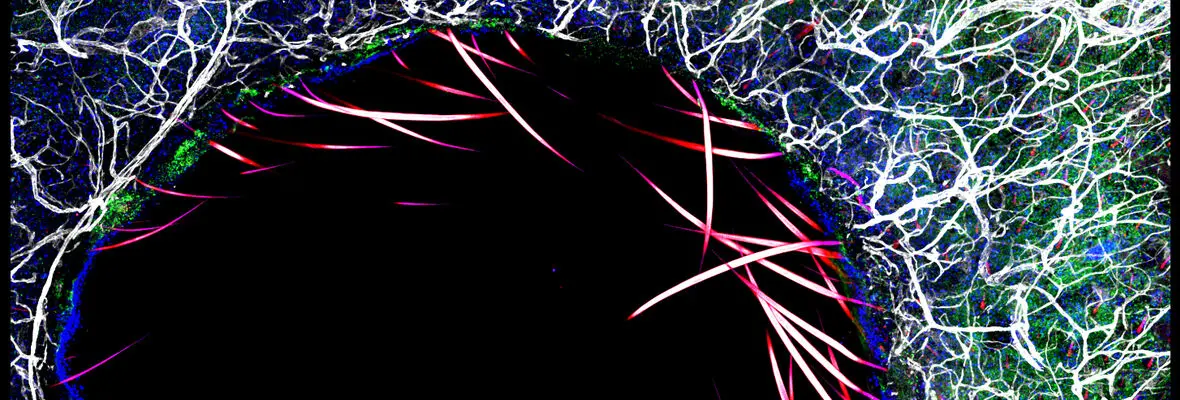Admissions
Eligibility
Candidates must be U.S. citizens or permanent residents for the NIH track and for Penn track students that choose to perform their thesis research at NIH. Penn track students that perform their thesis research at the University of Pennsylvania are conventional IGG students and not NIH IRP trainees/GPP students and follow eligibility criteria set forth by the University of Pennsylvania.
Application and Interview Process
To be considered for the Advanced Scholars program, candidates must complete BOTH applications below.
1. University of Pennsylvania's Application here.
2. University of Pennsylvania NIH Track Application here.
Admission Selection Process
1. The Penn IGG Admissions Committee, comprised of faculty members from the University of Pennsylvania and NIH, will review applications and make admissions decisions.
2. A maximum of 6-8 offers will be made for the NIH Track.
3. If you apply to both Penn Track and NIH Track, please be aware that offers are made to only one of the two programs. Once acceptance letters are sent, a NIH Track acceptance cannot be converted to a Penn Track acceptance.
4. Besides the NIH track students, approximately 2 additional spots/year will be available at the NIH for Penn track students.
Specifics of Financial Support
For students on the NIH track, NIH will be financially responsible for the tuition, stipend and health insurance starting from Year 1 of matriculation (including the pre-matriculation summer rotation of the 1st year) until completion, to the maximum allowed by NIH guidelines. Central funding is provided by a combination of funds from the NCI-CCR and the National Institute of Allergy and Infectious Diseases (NIAID), Division of Intramural Research (DIR). The transition from central funding to NIH mentor/IC-based funding are detailed below. For Penn track students that perform their thesis research at NIH, the NIH mentor/IC will be financially responsible for the student while they are training at NIH. NIH predoctoral trainees have a maximum traineeship of 5 years. Any time past that must be requested and approved through an official exceptional extension request process with the NIH Office of Intramural Research.
Tuition: NIH contribution to tuition costs will be capped at the NIH tuition rate (currently $16,000 per student/year) for the first two years and to $5,000 per year for any additional years. BGS will pay the balance of the tuition costs throughout the student’s training. Penn track students that transition to NIH to perform their thesis through the GPP will follow these tuition levels. For NIH track students, during the first two years of the program, tuition is centrally funded by the NIH through direct payments from NIH to the University of Pennsylvania. From the third year on (once thesis placement is accomplished), tuition is funded by the NIH mentor/IC.
Stipend: Student stipends will be paid directly by NIH to students. NIH track students are initially appointed through the Cancer Research Training Award (CRTA) program and remain as such for NCI placements. Students that place in other ICs will be transferred from NCI and their appointments changed to a Predoctoral Intramural Research Training Award (IRTA). Stipend levels are set by the NIH and are based on the student’s level of experience and academic achievement. The CRTA stipends follow a different scale from the IRTA stipends, and the students’ stipends must be adjusted appropriately depending on the placement. NIH track students must be clearly informed that thesis placement in a non-NCI research group will lead to a decrease in stipend level due to the differences between the CRTA and IRTA scales. During the first two years of the program, the students will be administratively appointed by the NIH-CCR, with funding centrally provided through the ASIGPP. Starting in year 3, the student’s stipend will be paid by the NIH mentor/IC. The financial support set forth in this agreement must be in accordance with policy on predoctoral trainee stipend parity, which can be found in the Office of Intramural Research (OIR) sourcebook under “Clarification on the Use of NIH Intramural Appointment Authorities for Predoctoral Students”:
The policies and stipend tables for the CRTA program can be found at:
https://www.cancer.gov/grants-training/training/at-nci/crta
The NIH manual chapter for the IRTA Program can be found at:
https://www.training.nih.gov/stipends/
Health Insurance: The NIH will provide students with health insurance through the Foundation for the Advanced Education in the Science (FAES). During the first two years of the program, this health insurance funding is centrally provided through the ASIGPP. Starting in year 3, the student’s health insurance costs will be paid by the NIH mentor/IC. Students will have the option in year one of choosing the University of Pennsylvania’s student health insurance as an alternative to FAES insurance. Students that choose this option can transition to the FAES-administered health insurance at the next open enrollment season after year one. More information about FAES health insurance services can be found here: https://faes.org/content/health-insurance-services



